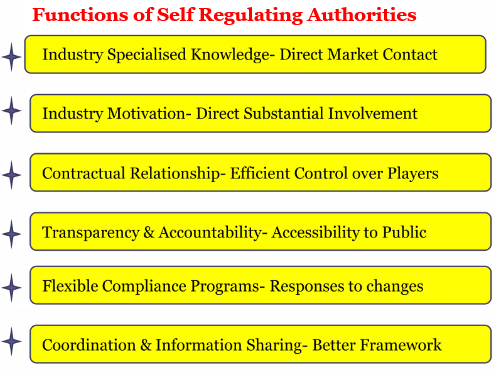7667766266
enquiry@shankarias.in
The recent allegations against the SEBI management board has brought to the fore the overall management issues in statutory bodies.

|
Sectors |
Regulatory Bodies |
|
Banking |
|
|
Capital Market |
Securities and Exchange Board of India-SEBI Act 1992 |
|
Insurance |
Insurance Regulatory and Development Authority of India-IRDA Act, 1999 |
|
Pension |
Pension Fund Regulatory & Development Authority-PFRDA Act, 2013 |
|
Information, Communication and Technology |
Telecom Regulatory Authority of India-TRAI Act , 1997 |
|
Quality Standards – Food, Pharmaceuticals |
|
SRAs in India directly regulate over 75% of India’s gross domestic product (GDP).
CCI law is the only SRA legislation that requires an inquiry by a Supreme Court judge (like for UPSC members) before removal.